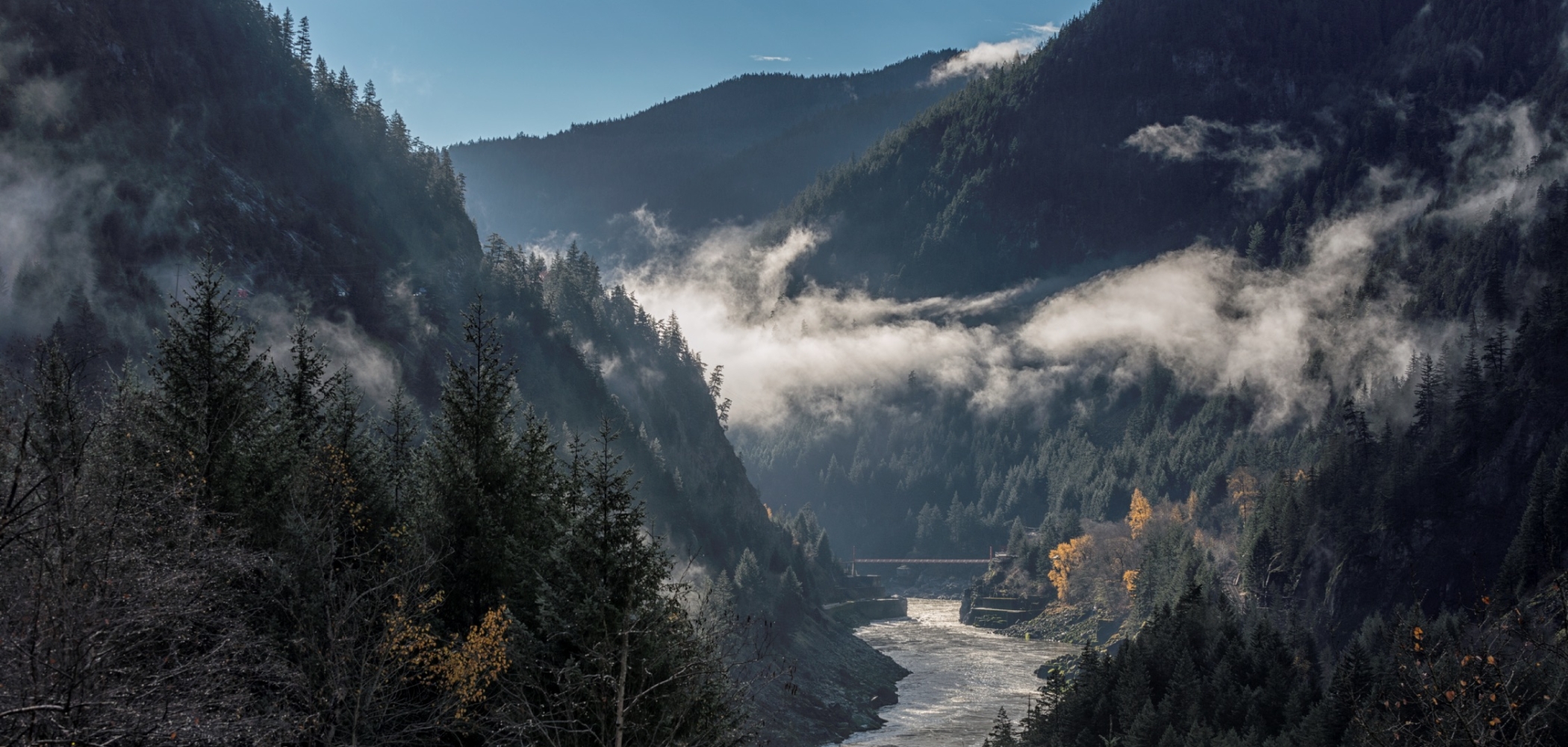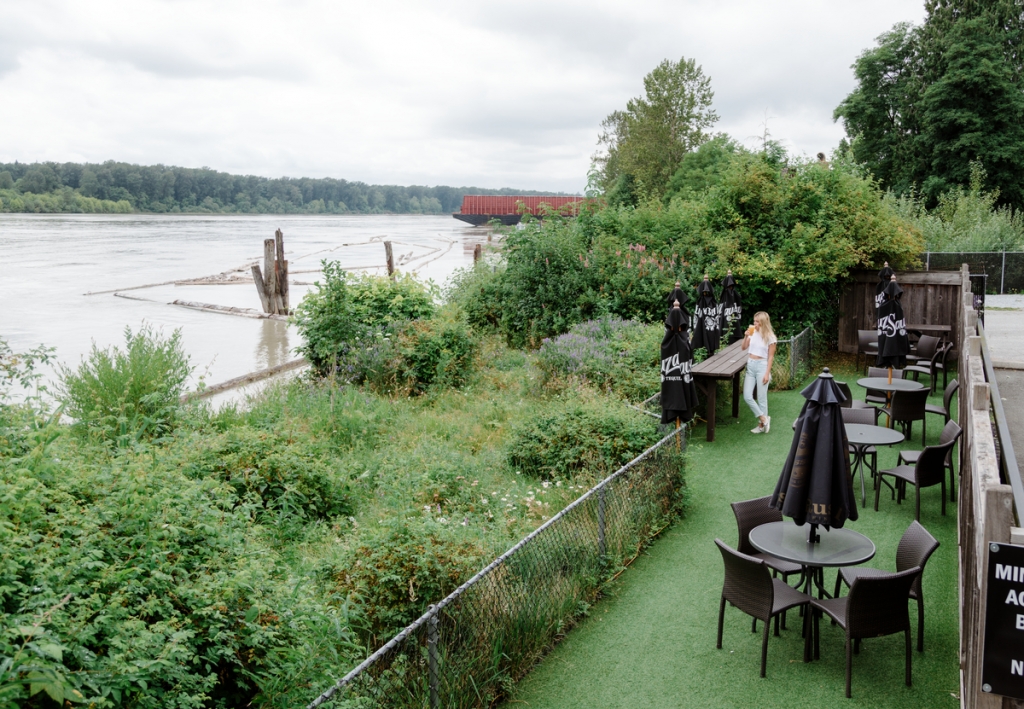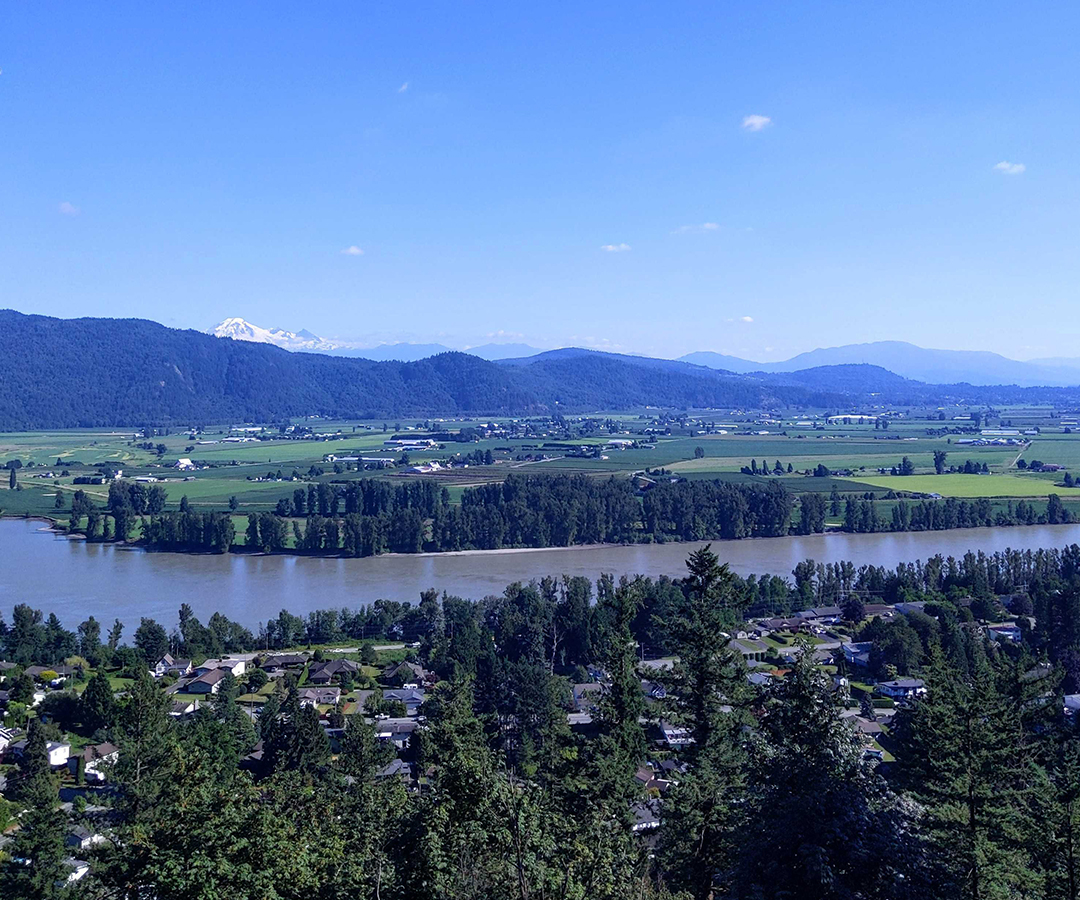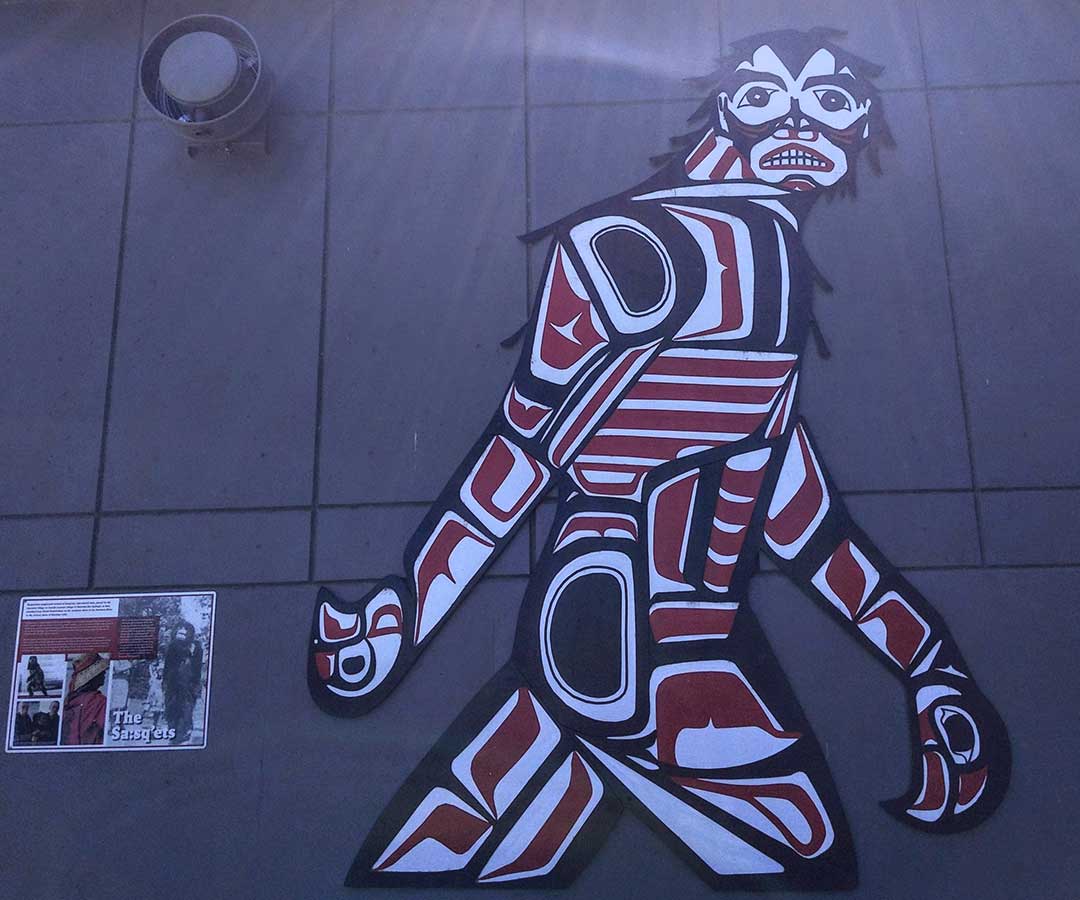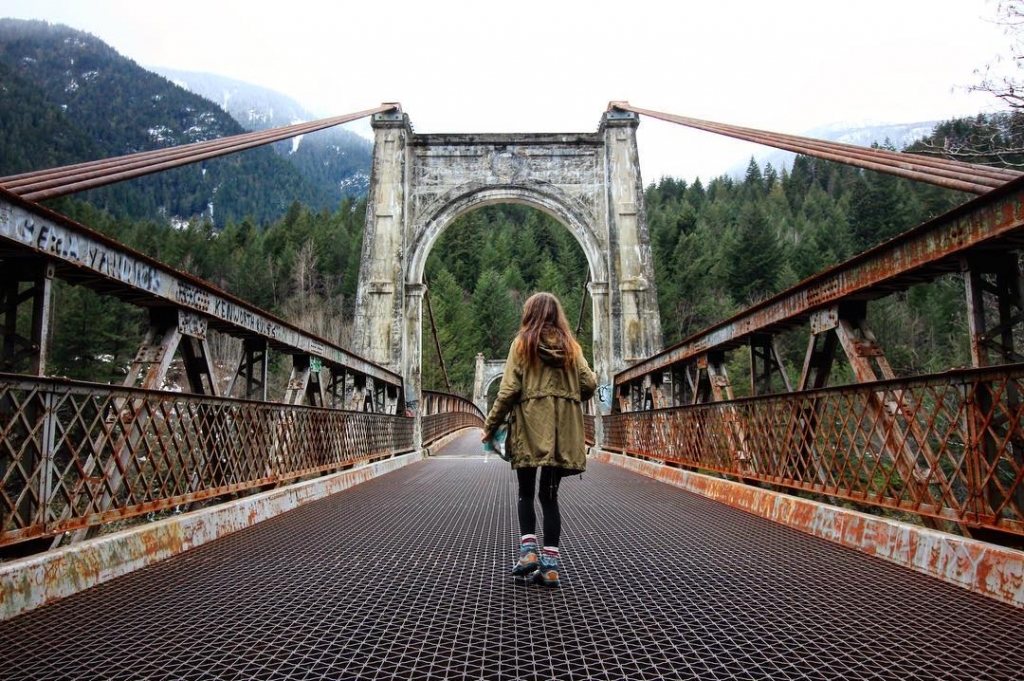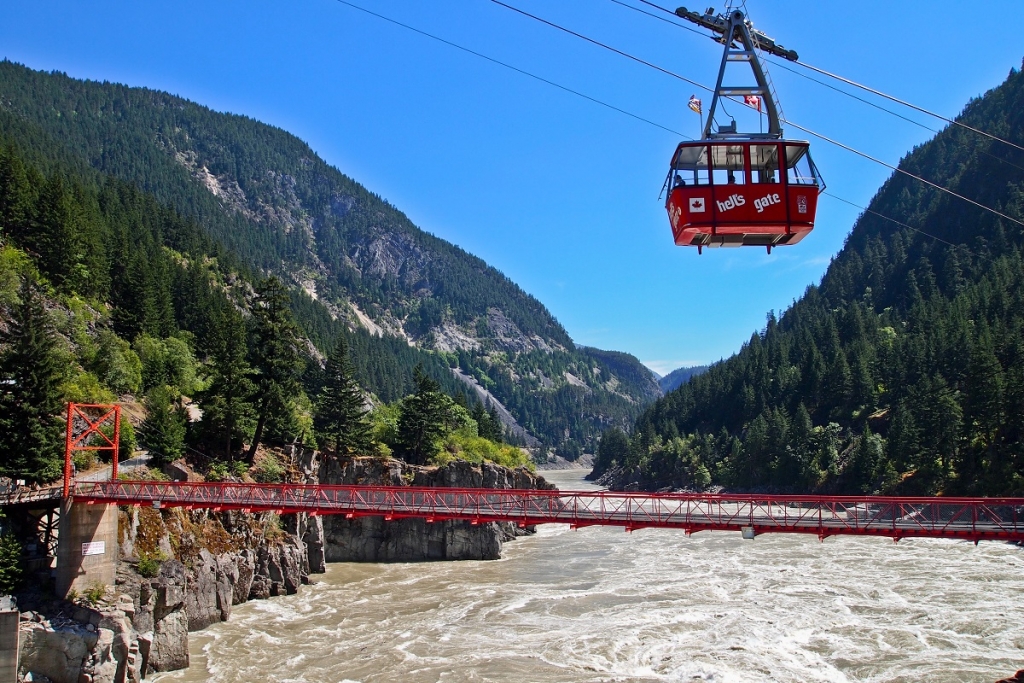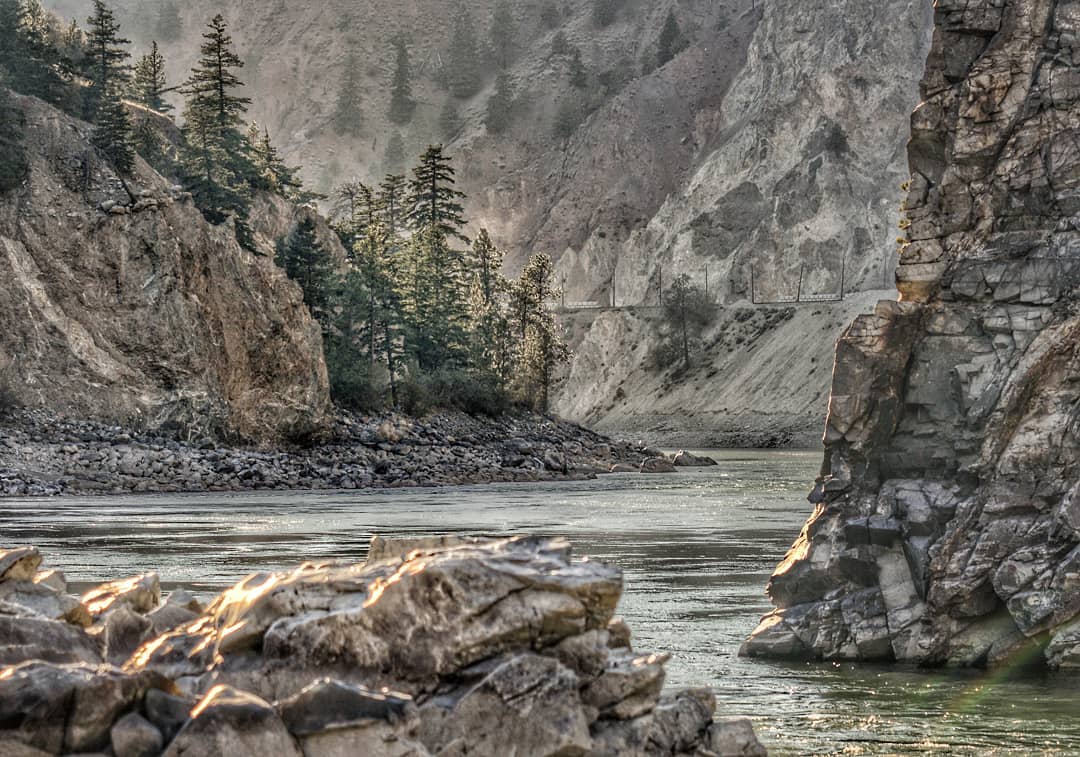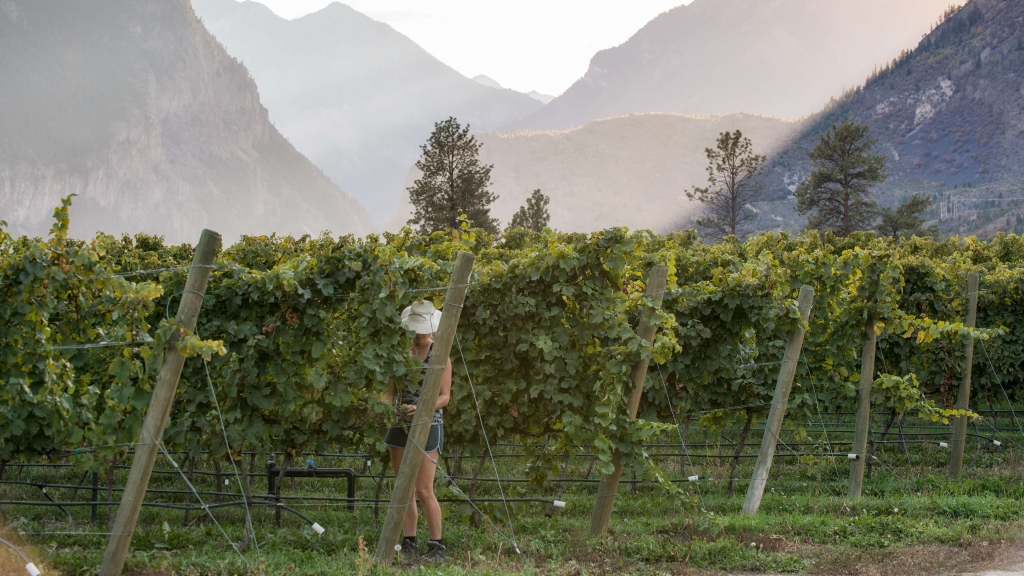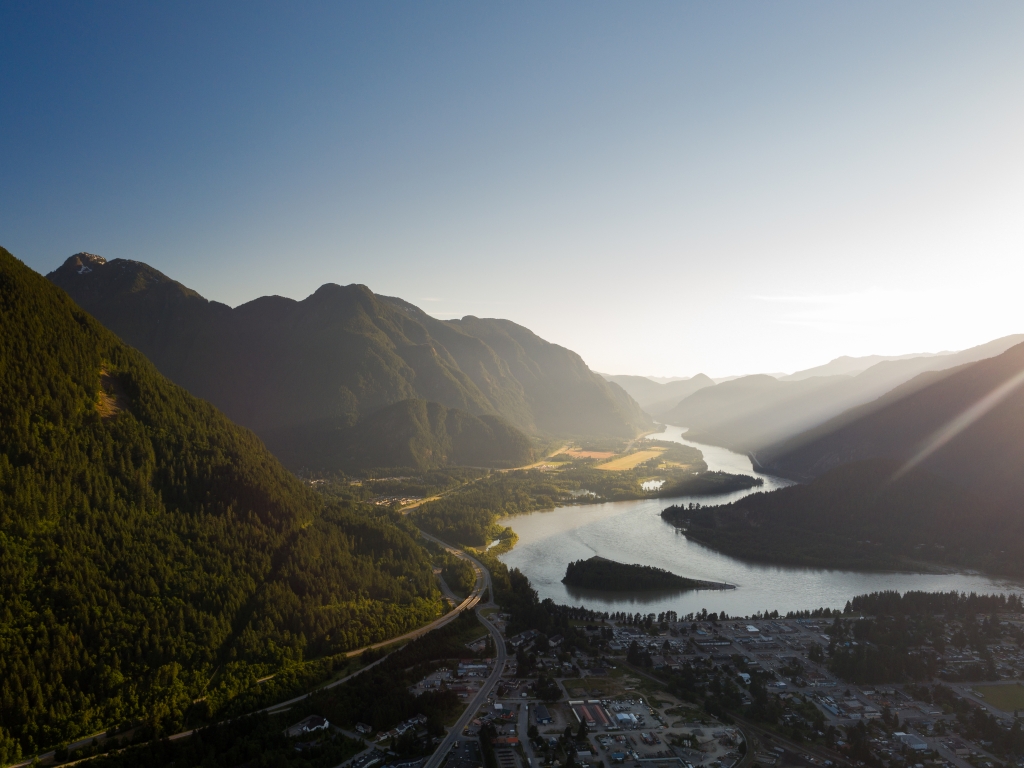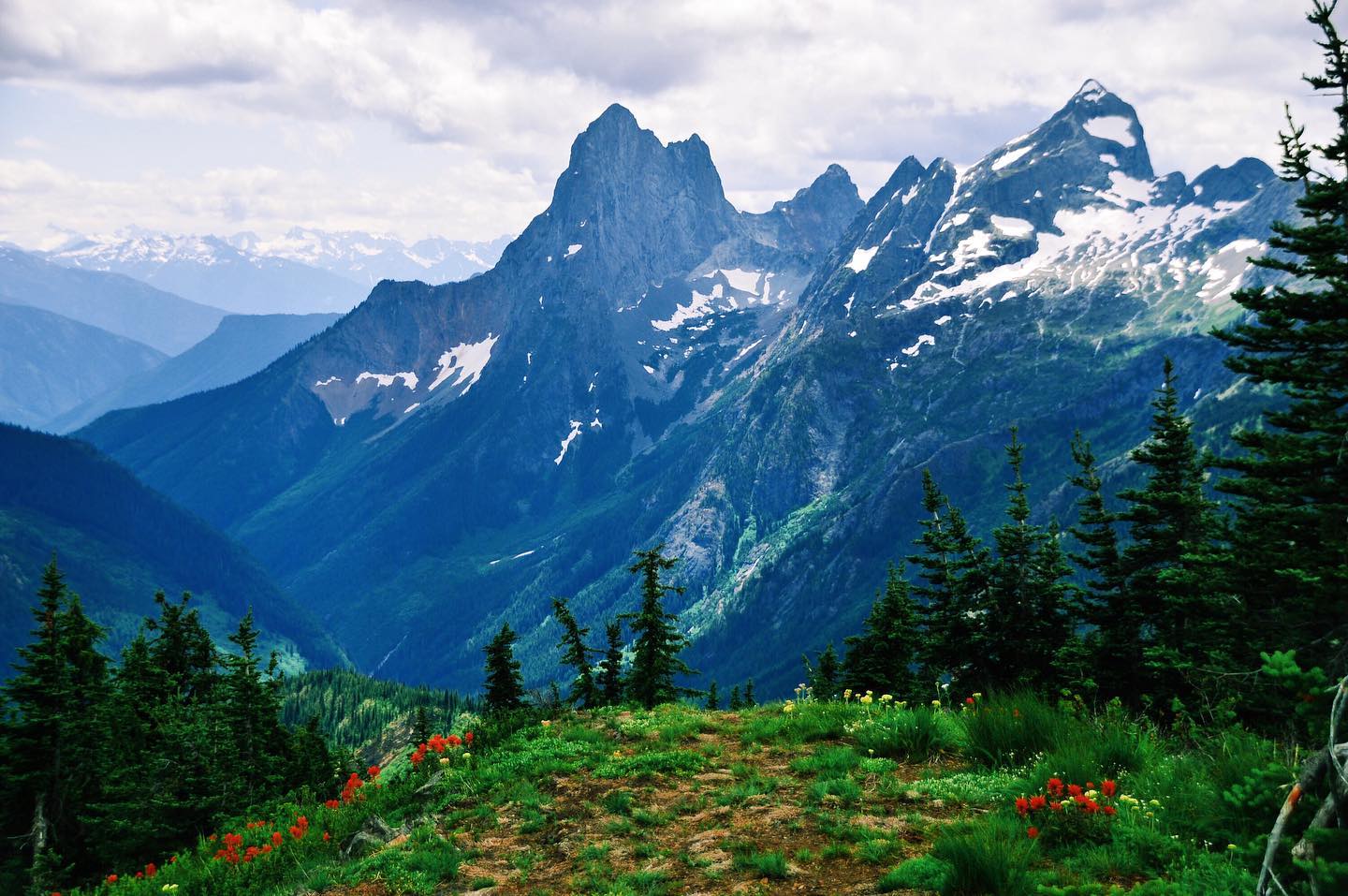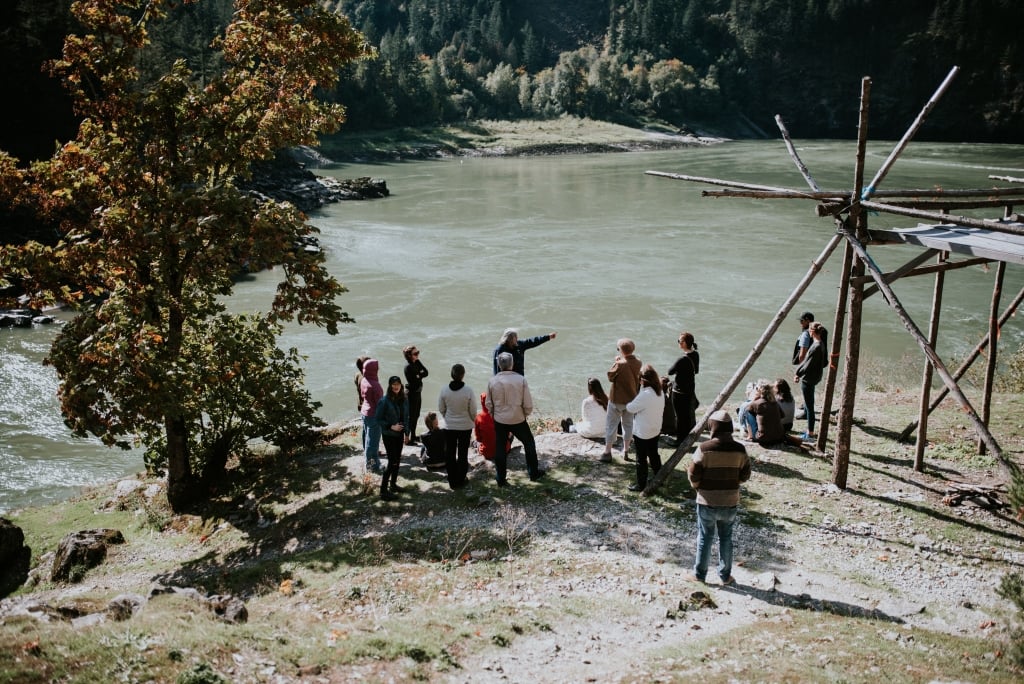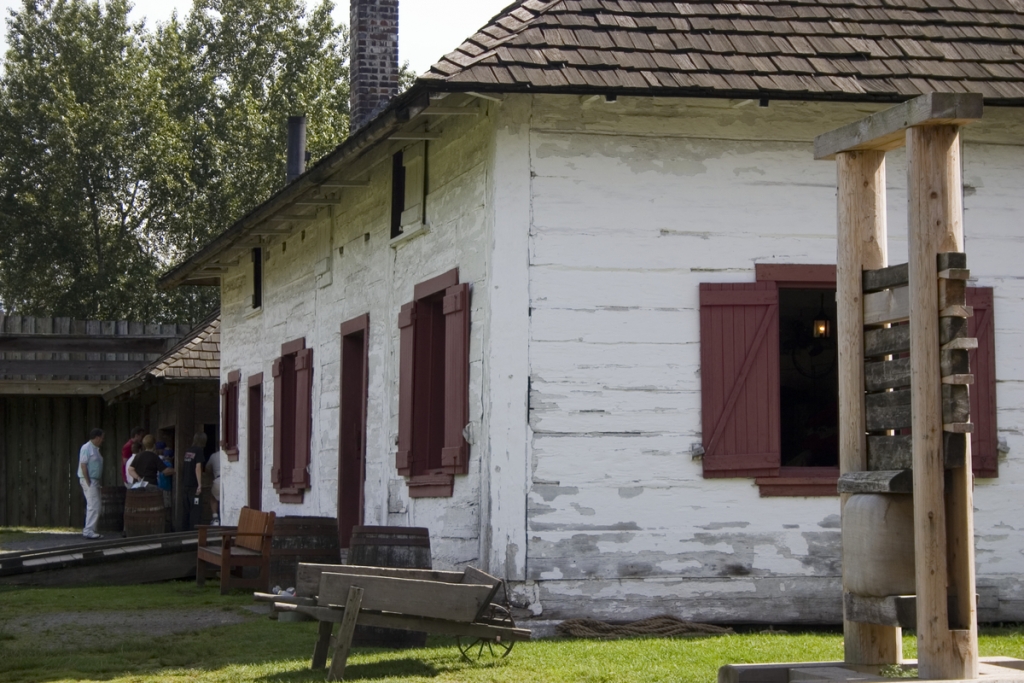Starting from Vancouver, drive east along Highway 1 towards Pitt Meadows. The landscape shifts from cityscape to agricultural lands filled with horses, cows, and berry bushes.
Near Pitt Meadows, Pitt Lake is a popular place for kayaking and canoeing. You can paddle west from the boat launch to Widgeon Slough, where a six-kilometre hike to a gorgeous waterfall waits. Make your way to the south end of the lake, where you’ll find Grant Narrows Regional Park, a gateway to Pitt-Addington Marsh Wildlife Management Area. Use this as a launchpad to explore the wetlands on foot or bike—there are some 200 species of birds and waterfowl, and 29 mammal species to view along the way. (Note that the boat launch is temporarily closed during the summer of 2020.)
Be sure to stop by Osprey Village for a coffee or Buddha bowl at family-run Stomping Grounds Café Bistro, or treat yourself to an ice cream at Sweet Tooth Creamery (they have Keto, vegan, and gluten free options too).


